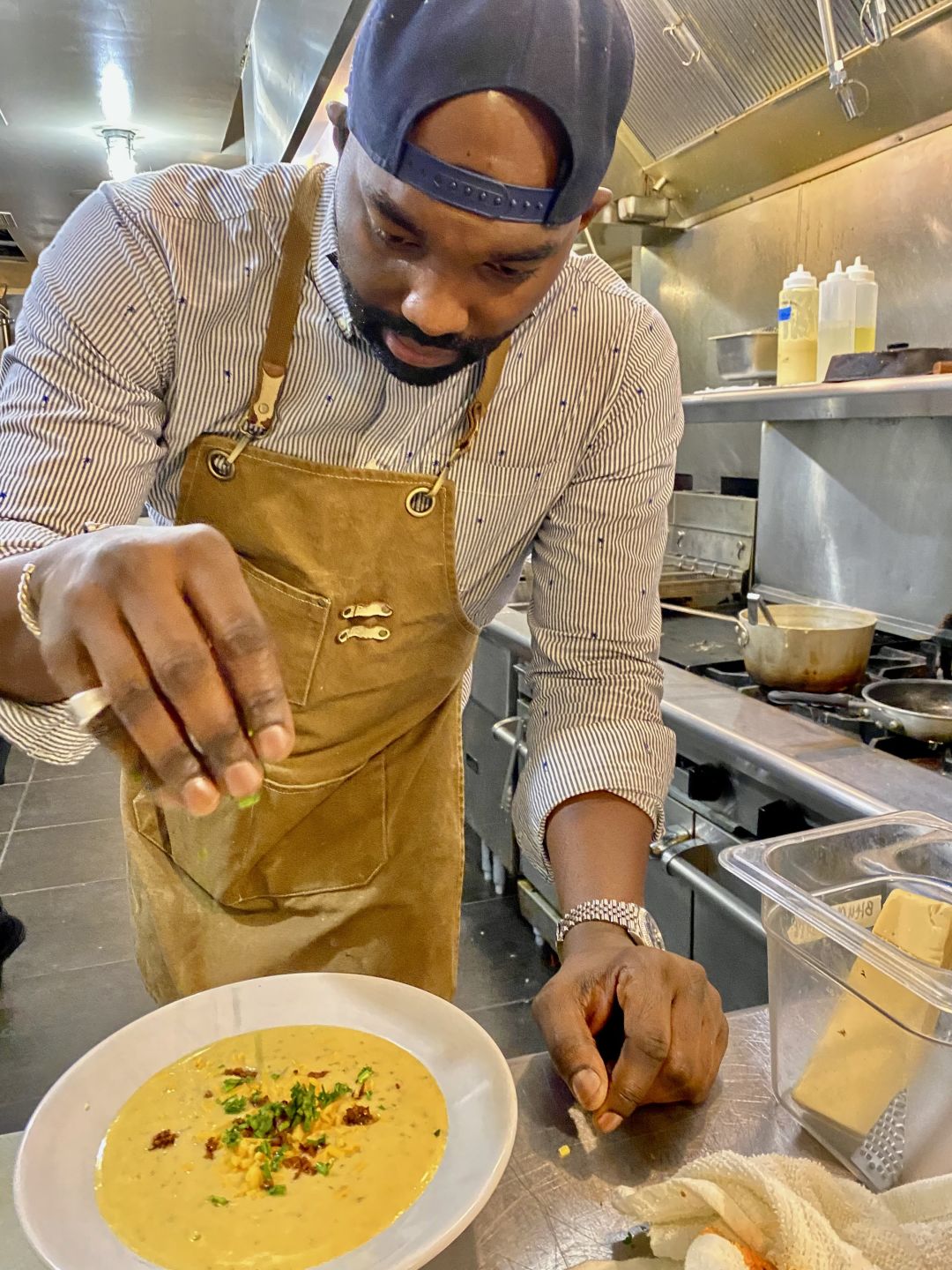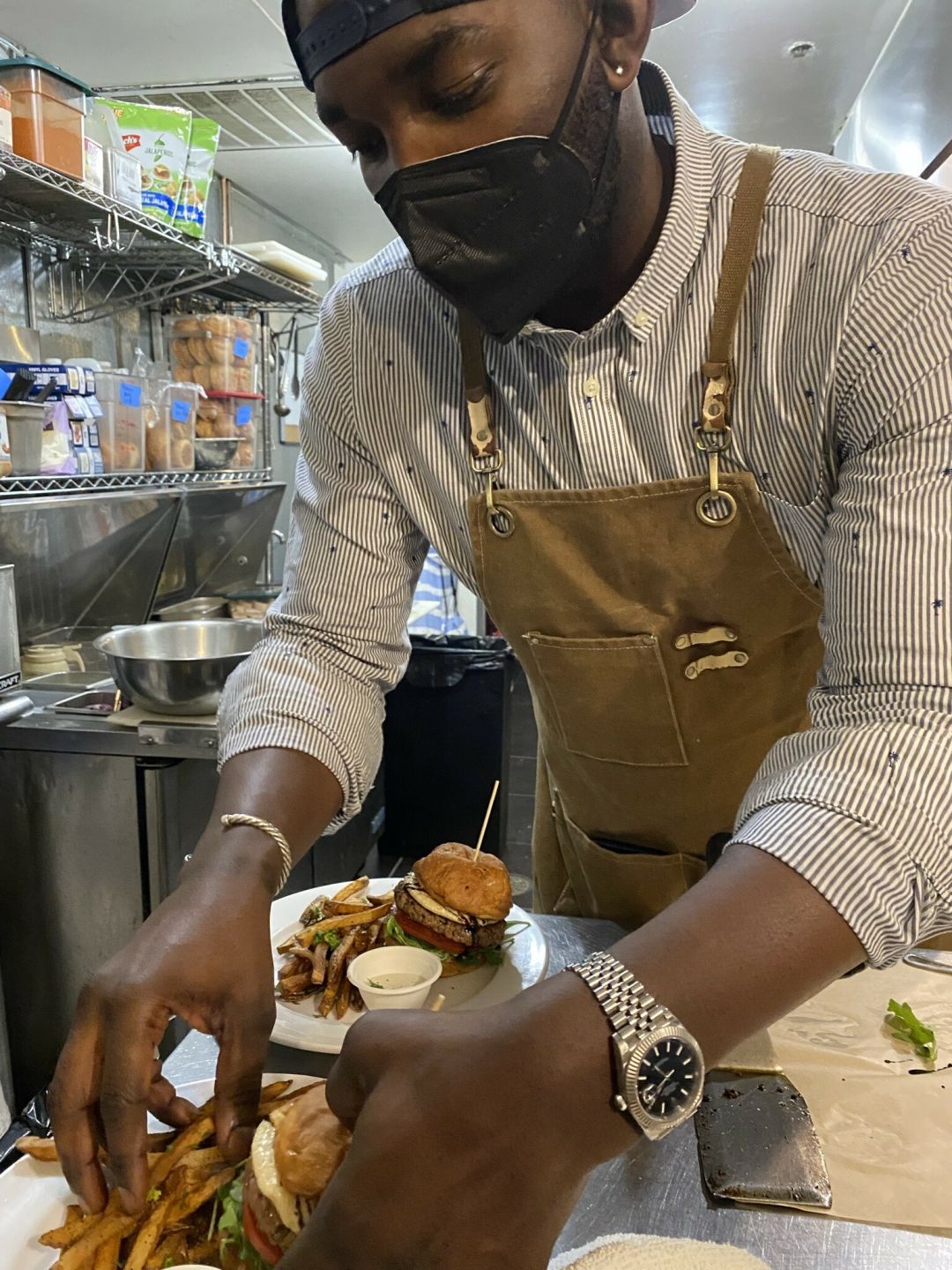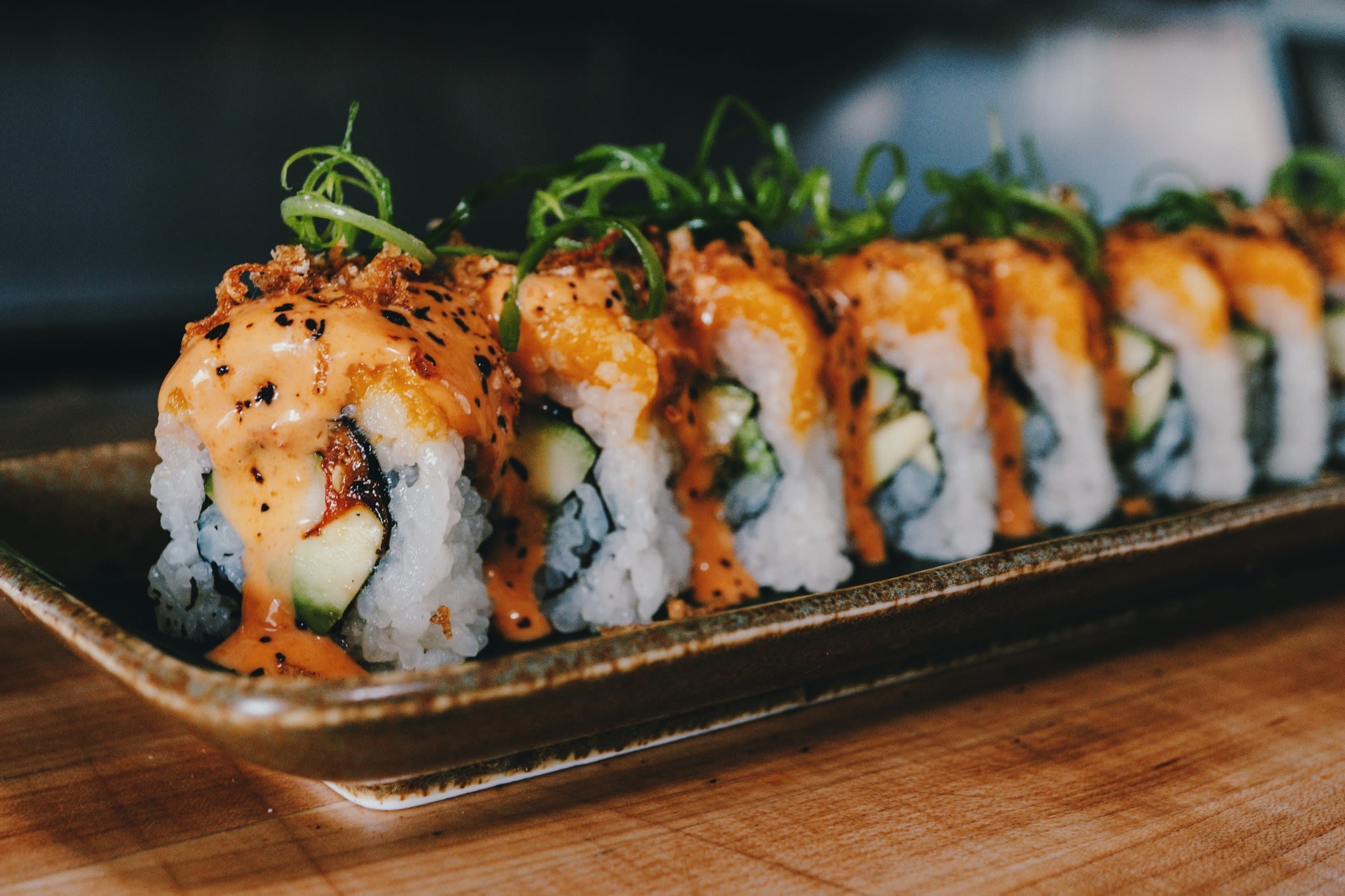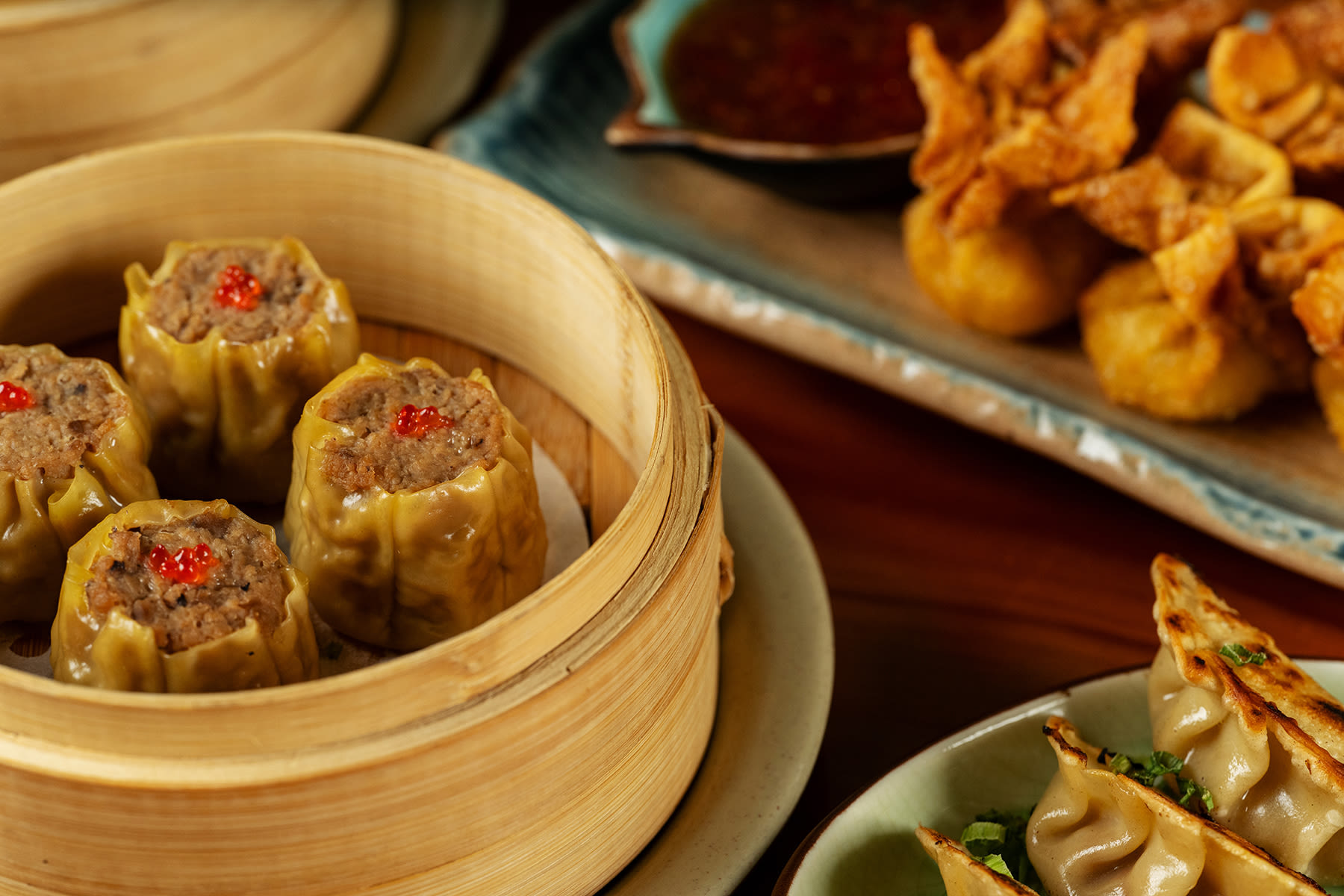This Portland Chef is Creating a Vegan Food Revolution

Manuel puts the finishing touches on a soup at Plant Based Papi.
Image: Latisha Jensen
Representation for Black Portlanders in the vegan scene is scarce, but Jewan Manuel, owner of the all-vegan Plant Based Papi, wants to change that.
After launching a series of pop-ups and residencies beginning in summer 2019, Manuel currently serves his food at Fortune in Old Town (614 SW 11th Ave), dishing up an often-changing menu with everything from jackfruit birria tacos, truffle mac and cheese, oyster mushroom fried chicken sandwiches, In-n-Out style burgers, and Sunday brunch. His goal: get more Black folks into the vegan lifestyle and boost representation in the predominately white vegan food scene along the way.
Manuel went vegan a decade ago. One day, he was eating a white bean chicken chili soup he’d prepared, and suddenly it didn’t sit right with his stomach—so he decided to give it up. A month later, he kicked out dairy and eggs.
But his love for cooking began way before switching to a plant-based diet. In fifth grade, he went to a summer day camp, where he took his first cooking classes, learning to make everything from peanut butter and jelly sandwiches to homemade bread.
“We got to make cinnamon toast from scratch and make our own dough,” Manuel says. “I remember being super excited about that process, and I would go back home and attempt to make it every morning.”
Manuel grew up in Flint, Michigan, where his family of nearly 20 would get together a few times a month for meals his grandfather prepared.
“He was a cook, and I would sit there and pay attention to him,” Manuel says. “I remember he had a little radio clock he would play while he was cooking and I’d sit at the barstools in the kitchen at their island, and I would just watch him and he would have me help him from time to time.”
It stuck: Manuel took culinary class in high school, worked in restaurant kitchens in college, temporarily detoured to a corporate gig in LA and eventually landed in Portland in 2016. He worked as a sports model while working on his vegan recipes here in the Rose City, long established as one of the country’s vegan hot spots. He felt his way through, figuring out substitutes for the acids and fats in butter and cream, cooking first for himself and then—at the urging of friends—for others.
While Black vegans might make up a relatively small percentage of Portland’s plant-based population, Manuel feels the city’s Black community has the most to gain from a plant-based diet. Statistically, Black Oregonians have some of the highest rates of premature mortality, according to Oregon Health Authority's Public Health Division. Though members of Manuel’s family struggled to understand his lifestyle change, he hopes that a vegan diet could help them avoid some health issues. “You see the disparities in health issues in their families that they are carrying on by eating the same thing,” Manuel says. “I say this to a lot to people…[hereditary] diseases can lie dormant, but I think passing down the food that we eat is hereditary in a way.”
Food is connected to culture, and for many, it offers a sense of familiarity and comfort.
“Your mom or your dad is eating a certain thing and that feels like home, but all of a sudden you activate those diseases that could’ve never been prominent in your system,” Manuel says. “I hope that’s something people think about, especially in the Black community because it is literally killing us.”

Manuel puts the finishing touches on caprese burgers.
Image: Latisha Jensen
Behind the scenes, there’s a lot of creativity happening in Manuel’s kitchen. The cheese he uses on his caprese burger is made from his homemade garlic cashew crema, squeezed onto the hot stovetop with a bit of oil for a few moments until it reaches the consistency of a cheese slice.
One thing that makes Plant Based Papi stand out is that, with the exception of Impossible meat in his burgers, Manuel doesn’t use premade ingredients such as soy curls or seitan. Instead, he focuses on using whole veggies such as mushrooms to create ‘fried chicken,’ or jackfruit to create birria.
“Trial and error taught me the most in terms of flavor and seasoning, because I definitely have failed a lot when trying to deliver certain things, but that’s part of the process,” Manuel says. “I use every technique in the book as far as trying to use my own buttermilks and real spices. I have a 13-spice blend that I use. I know that matters.”
Ultimately, Manuel wants to normalize Black ownership, but being a Black business owner in Portland comes with preset challenges.
“It’s been a task as a Black man and understanding my Black business to be in collaboration with people that may not understand the vision of me and my culture,” Manuel says. “It’s been an annoyance, but that’s the crown we have to bear when we are in these spaces that are predominantly white.”
Owning a food business as a person of color, especially a vegan one, requires a tough skin, says Thuy Pham, owner of vegan Vietnamese restaurant Mama Dút Foods and former neighbor to Plant Based Papi. She and Manuel would confide in one another as business owners and friends. Having him around made Pham feel safer, she says.
“We’d talk about our experiences and what it meant to us. I don’t think I would’ve had the strength to keep going if Jewan wasn’t around when I first started,” Pham says. “I felt like I didn’t belong, and Jewan made me feel like I belonged. I don’t think people realize how much of an inspiration he is, especially for the Black community in Portland.”
He’s encouraging a whole new generation of Black folks to incorporate more plant based food and to break away from systematic oppression in food, she says.
“It's really dope to see Jewan be a part of this change for his people. He’s doing it his own way and setting such a great example for folks.”
Manuel hopes to inspire others as a Black vegan chef and business owner in order to make more of an impact.
“I understand the importance of that and I want to fill that space for a Black man,” Manuel says. “I don’t want to miss that ship. If this is going to be the conduit that’s going to help me change my family’s lineage or help me impact my community the right way, then I’m fully vested into figuring that out.”




